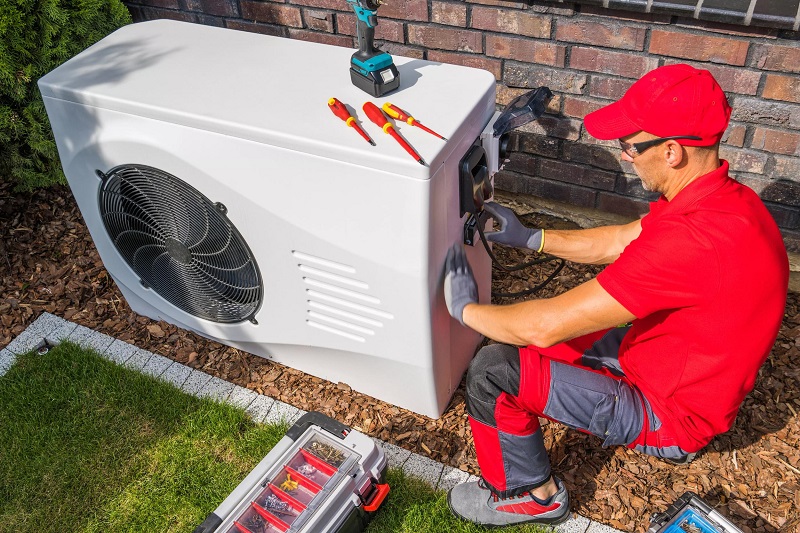The Home Energy Model: Future Homes Standard assessment is the methodology which will be used to demonstrate that new dwellings comply with the Future Homes Standard.
The Home Energy Model will replace the Standard Assessment Procedure (SAP) version 10.2 for the energy rating of dwellings.
The Home Energy Model: Future Homes Standard assessment is still under development and will be implemented alongside the Future Homes Standard in 2025. The Department for Energy Security & Net Zero (DESNZ) is consulting on the model ahead of its introduction.
SAP is the government’s system for assessing and comparing the energy performance of homes. It is used in building regulations to ensure new homes are energy efficient and low carbon and is used to generate energy performance certificates (EPCs), which are required when homes are sold or rented out. SAP is also used more widely within and outside government, for example in government grant schemes, policy evaluations and to support advice to households on making energy efficiency improvements. The Home Energy Model, which in development has been known as SAP11, will be more suited to the technologies required to decarbonise the country’s housing stock as we move towards net zero because it is a complete overhaul based on the next generation of software.
Created as part of a three-year research project with DESNZ, the Home Energy Model has been designed by the Building Research Establishment (BRE). The Home Energy Model will be used to set standards for new homes to ensure that they will be ‘zero carbon ready’, future-proofed with low carbon heating and world-leading levels of energy efficiency. The government has also signalled its intention to use the Home Energy Model to determine assessments for EPCs.
BRE says that the Home Energy Model is better suited to green technologies, such as heat pumps, storage technologies and smart control devices. It is designed to work in a modular way to support many different applications where energy performance assessments are required. It has a higher time resolution and can model energy performance for every half-hour of the year, enabling better representation of smart technologies and storage. The consultation proposes that the Home Energy Model will be released as open source, increasing transparency and making it easier for industry and researchers to apply and modify the methodology for different applications.
BRE chief executive Gillian Charlesworth said: “The introduction of the Home Energy Model is a significant milestone on the road to achieving net zero across the UK’s housing stock. As uptake of green technologies increases, an effective assessment methodology which accounts for these changes will be imperative as the government looks to secure buy-in from homeowners, housebuilders, and the retrofit industry on the net zero transition and achieve its targets in this area.
“BRE has worked closely with government since SAP was introduced, and we are excited about the potential for ambitious policies and programmes for low carbon homes which the latest version will support. These changes to the SAP methodology will have wide-reaching impacts not only for government, but across industry. I therefore urge all relevant stakeholders to take part in this consultation to ensure that the final design of the Home Energy Model is as well informed as possible.”
Tamsin Lishman, chief executive of British heat pump manufacture Kensa Group, welcomed the progress being made. “The publication of proposals requiring all new homes to be low-cost, low-carbon and energy efficient to run is a major step forward for the decarbonisation of homes and heat. This new standard will boost heat pump installations drastically, expanding the market from 50,000 to over 250,000 almost overnight, providing companies like Kensa with the confidence to go ahead and invest heavily in new manufacturing facilities and the continued development of our supply chains,” she said.
“It is particularly important that these proposals intend to make heat pumps and low-carbon heat networks the default options for heat in new homes, effectively banning new gas grid connections and so-called hydrogen-ready boilers from installation. Allowing these technologies to continue to be installed in new homes would simply have maintained confusion about the future of home heating and short-changed hundreds of thousands of new home buyers who would have inevitably had to replace their fossil fuel heating system in the years to come.
“In an extremely busy policy landscape, establishing these standards is the single most important step the government can take to fire up the heat pump market and drive investment in the sector. As a developer of networked heat pumps, a heat pump in each home connected to a shared networked in the street, Kensa is confident the Future Homes Standard will now lead to a major expansion in the deployment of this technology, combining the best of heat networks and individual heat pumps.“
However, Simon McWhirter, deputy chief executive of the UK Green Building Council, was underwhelmed. He said: “This can’t genuinely be described as a ‘future’ standard. Having already shattered industry confidence with repeated green rollbacks, the government has opted for the least ambitious option that would deliver ‘future’ homes from 2025 at a lower standard than many homes already built today.
“On the last day of the global climate negotiations when we’re in the last chance saloon to keep temperatures under 1.5 degrees, it’s unconscionable that the government is consulting on scrapping the expectation that new roofs should have solar panels, when this is already widely delivered through current regulations.
“While the government is right, of course, to finally end the era of burning gas and oil in our new homes and buildings, fitting low-carbon heating sources such as heat pumps is already commonplace, and the standard provides no improvement in energy efficiency.
“We’re disappointed that, despite such a long delay in producing this draft standard, the government still hasn’t included measures to reduce the embodied carbon emissions from construction which accounts for around 1 in 10 tonnes of climate emissions in the UK. Nor has it moved to tackle flood risk or end the huge water waste from new builds that is driving shortages and so much ecological damage.
“The best developers have spent years and millions gearing up for modern green building standards which shows that higher standards are possible. UKGBC will be convening our members to submit a detailed response to the consultation that sets out how higher standards can be practical, affordable and protect climate and nature.”
The consultation runs until 6th March 2024 and can be found at energygovuk.citizenspace.com/heat/home-energy-model-future-homes-standard
Got a story? Email [email protected]

